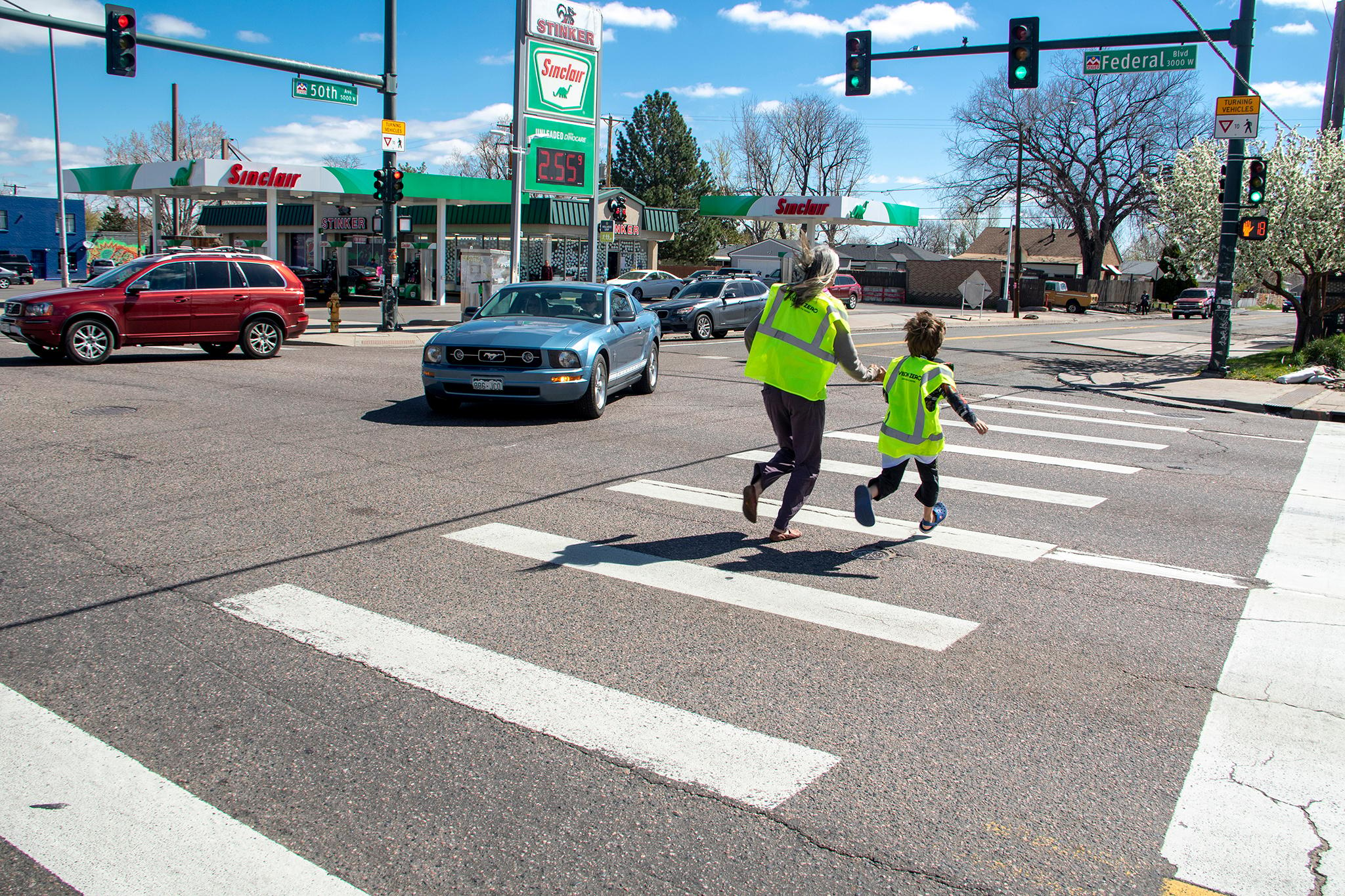Fifty-eight people have died in traffic crashes in Denver as of Sept. 30, one more than the 57 killed in all of 2020.
In four years of the city's participation in the international safe-streets program called Vision Zero, the only thing that has managed put a noticeable dent in overall traffic deaths has been the worldwide pandemic. The only month the city of Denver has ever gone without recorded traffic fatalities was April 2020, at the height of the state's Stay at Home orders.
Traffic deaths were already surging before the pandemic; 2019 set a record high for Denver traffic deaths with 71 fatalities, a grim number that is now once again within reach. If traffic trends continue at the exact pace they have for the last nine months, the city would record 76 deaths by the end of the year. Vision Zero aims to ultimately eliminate all traffic-related deaths in the city by 2030.
Pedestrian deaths, however, have decreased steadily, a spokesperson for the city's Department of Transportation and Infrastructure pointed out. They fell from 25 in 2019 to just 12 so far in 2021.
It was the only mode of transport that saw a decrease, and could be a continuation of some trends that emerged in 2020.
Last year, Colorado's interstates saw an increase in the number of interstate fatalities despite fewer overall drivers and lower levels of all serious accidents. 2020's Vision Zero report speculated that decreased traffic on those bigger streets led to faster driving, and therefore more deadly crashes. This trend may be a contributing to the shift in traffic fatalities towards interstates in the city, and away from smaller streets and pedestrians.
The city also highlighted its recent efforts to make roadways safer, like utilizing paint and posts to slow drivers down along East Colfax, or providing a strip in the center of the street where crossers can wait before stepping across the remaining lanes. The timing of lights in pedestrian-heavy areas has also changed, giving pedestrians the go-ahead before drivers get a green light.
The Denver Streets Partnership, a coalition of community groups advocating for safer streets, releases report cards for the Vision Zero program annually. In 2020, they gave the program a B- overall, noting that the program is not on track to achieve its zero-fatality goal by 2030. The overarching theme of the report was that Vision Zero has produced mixed results.
For example, last year the program built only 6 miles of sidewalks despite their 20-mile goal (we've reported in the past about the city's response to all things sidewalk). But Vision Zero did relatively well implementing new traffic-calming infrastructure along five different roads in 2020, too.
Some advocates are not surprised that traffic deaths are headed right back where the once were.
"The thing that changed during the pandemic was the number of people driving," Jack Todd, the communications director for Bicycle Colorado, said. "Our infrastructure remains the same as it did, more or less, in 2019."
Todd also noted that all traffic fatalities are preventable tragedies: "These people who have died on our roadways this year, they're more than just numbers. They're people who had families who are grieving them right now."













